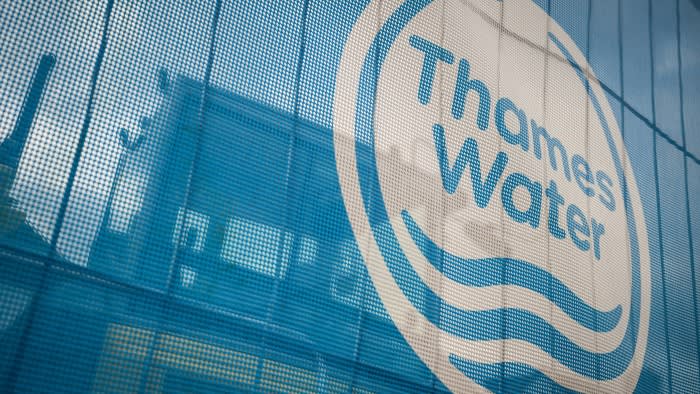Unlock the Editor’s Digest for free
Roula Khalaf, Editor of the FT, selects her favourite stories in this weekly newsletter.
Two Chinese state-owned banks hold a crucial role in the future of Thames Water, as part of a group of lenders involved in a stand-off over debt at the parent company of Britain’s largest water utility.
Thames Water’s immediate parent company Kemble Water Finance has a £190mn loan which shareholders last week said they would be unable to repay when it matures on April 30.
The lenders, which have so far refused to extend the loan without an injection of fresh equity from Thames Water’s owners, are Chinese state-owned Bank of China and Industrial and Commercial Bank of China (ICBC), as well as Allied Irish Banks and Dutch lender ING, according to people familiar with the matter.
This means that in case of a default on the loan, the two Beijing-owned banks could become shareholders of Thames Water.
Their pivotal role comes amid tensions over Chinese investment in Britain. The UK has moved to restrict Chinese investment in critical infrastructure such as the planned new Sizewell C nuclear power plant in Suffolk and forcing telecoms groups to strip out Huawei equipment from the country’s communications network.
The UK used national security powers to intervene in eight deals involving Chinese-linked investment in British companies in the 12 months to March 2023.
Thames Water’s shareholders, which include Chinese sovereign wealth fund CIC, last week backtracked on providing £500mn in fresh equity, signalling their willingness to take an estimated £5bn loss on their investment in the water utility.
If Kemble defaults on the loan it could trigger a change in ownership of Thames Water, although the utility company’s own debt should remain unaffected.
However, Thames Water, which supplies water to a quarter of the British population, remains in trouble. While it says it has £2.4bn of liquidity — enough to run the business for the next 15 months — it needs more than £3bn in equity by 2030 and a steep rise in customer bills to maintain services and deliver improvements.
The company, which provides water and sewage services to around 15mn customers, has been struggling with the effect of higher interest rates on its £18bn debt as well as labour, energy and materials cost inflation and a series of fines for sewage pollution.
The government remains on standby in case there is a need to temporarily renationalise the company, under plans codenamed Project Timber, a reference to the lumberjack’s warning before an imminent fall.
The shareholders’ refusal to provide new funds leaves the government and regulator Ofwat in a dilemma: the only way they can stop investors walking away is by agreeing to concessions, which would be paid for through bill increases, at a time of a public outcry over sewage pollution and other service failures.
The shareholders have asked Ofwat to approve a 56 per cent real-terms increase in bills by 2030 as well provide leniency on dividend rules, pollution fines and investment plans. Ofwat is due to make a draft decision in June and a final ruling early next year.
One issue is that Kemble is reliant on dividends paid by the regulated operating company, which receives the cash from customer bills.
However, new rules introduced by Ofwat last year prevent the payment of dividends from the operating company if they put the company’s financial resilience at risk or if a utility underperforms on social or environmental measures. Ofwat has already opened an investigation into a £37.5mn dividend paid by Thames Water in October last year, with a ruling expected within weeks.
Fitch Ratings downgraded Kemble’s credit rating to CC on Thursday, which it said indicated “that a default of some kind appears probable”.
At least one of the lenders has tried to sell out of its position in the loan in recent weeks, according to distressed debt investors, but struggled to find buyers even at deep discounts to face value.
Bank of China, ICBC, ING, AIB, Kemble and Thames Water declined to comment.
Additional reporting by Will Louch in London and Cheng Leng in Hong Kong
